Water cooling - what you need to know.
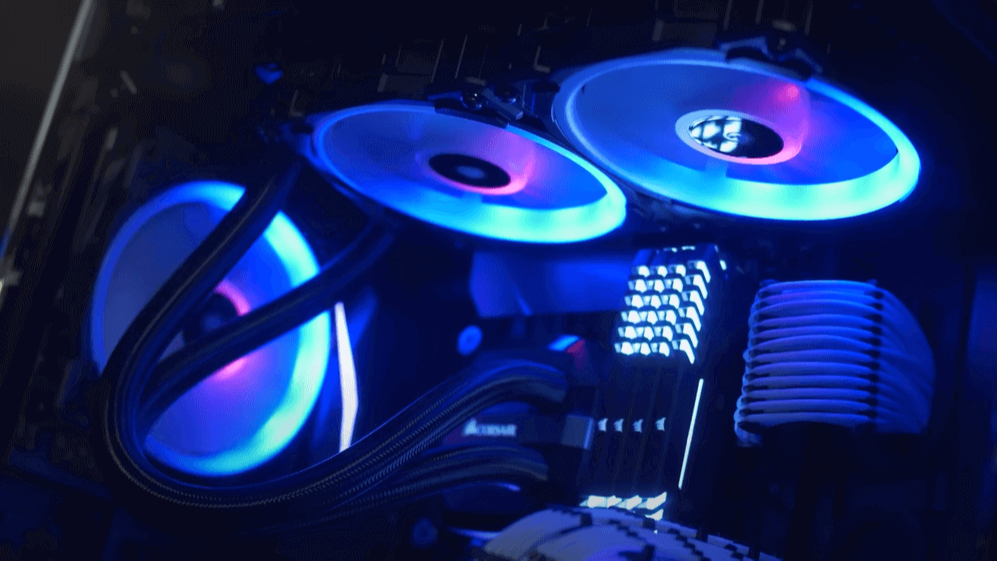
Does my computer need a water cooling system?
Which cooling system is better for stable CPU and graphics card: water or air? - The eternal dilemma and the subject of many debates. No matter how many arguments in defense of this or that decision, the last word always depends on the context. Sooner or later every PC user will not have enough of their once favorite graphics cards and processors, sooner or later there is a question of buying a new PC. There are a lot of stores with ready made sets, but what can you do if you want to build your own dream PC and not overpay?
...The cooling system is the last but not the least in the list. And if the choice between HDD and SDD hard disk is obvious, then the cooling system is not so simple...
A look back at history
A little bit of math wouldn't hurt. In the ancient days of the first pentium, personal computers had no cooling at all. The video cards of those days could not work with 3D and consumed no more than 10W, so they heated up to room temperature at most. Over time, namely between 2007 and 2017, there was a technological boom in the video card market. Video gas pedals from 2007 to 2013 became five times more powerful, but even the former 10W power consumption went up under 100W. The same was true for processors, but there the amount of power consumption and performance were not comparable to video cards, processors were not yet natural stoves back then. However, the trigger of the future was already pulled, the shot was not long in coming.
Frequencies rose, and with them, so did heating. The first video card with a built-in cooler was NVIDIA GeForce 256. In October 1999, there was no talk about water cooling; only in rare cases, craftsmen made something remotely resembling water cooling system from pumps, hoses, and radiators. These handicrafts leaked and did not serve long, and it is because of them, there is a rumor that the water-cooling system is not reliable, although ...
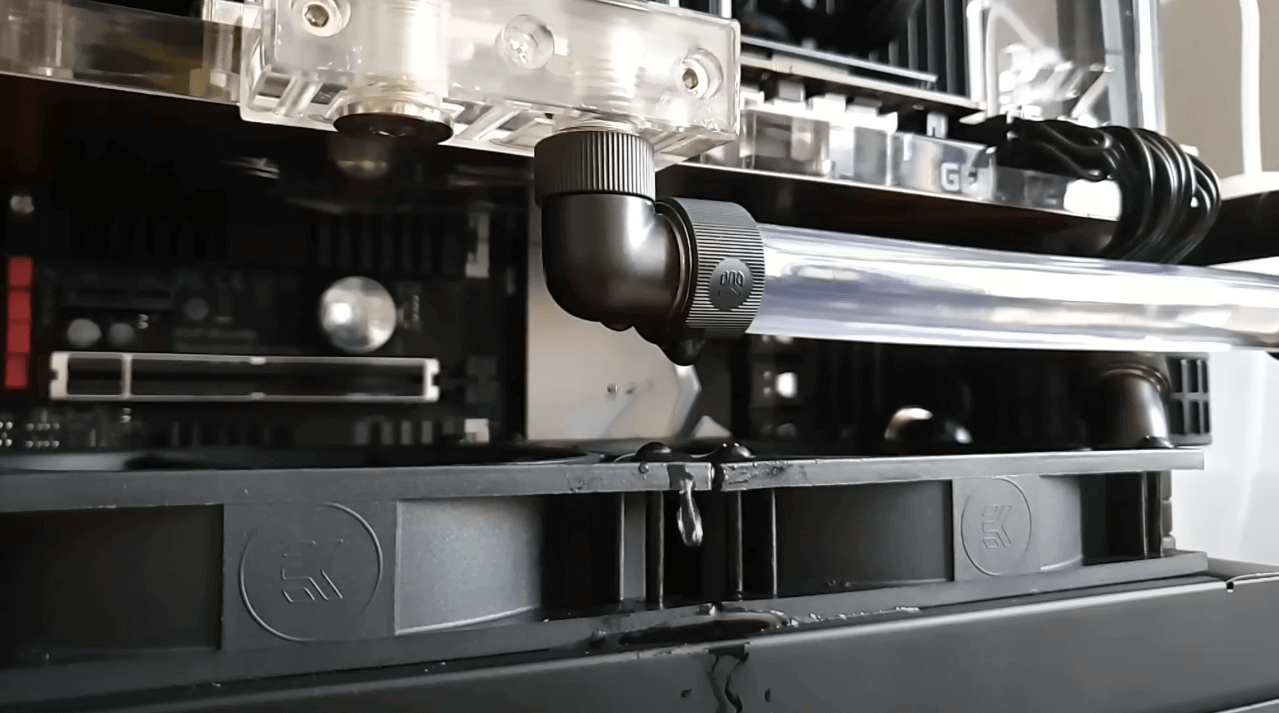
In those distant years, the customer had no choice between cooling systems. The myth that the lower the temperature of the graphics card and processor, the better the performance, had not yet been dispelled.
Operation of the water and air cooling systems
The principle of air cooling is based on copper tubes wrapped with a heat-saving heat sink. The copper tubes have an additional copper overlay that provides greater thermal conductivity. An air-cooled cooler draws in the hot air, carries it through the case and out of the case. In return, the radiator is cooled by copper tubes, in which distilled water circulates. The air cooling system is highly regarded by users for its durability and interchangeability of components. If one of the coolers stops spinning, it can easily be replaced. The diameter of the blades is standardized, so there are no problems with repair, even with your own hands.
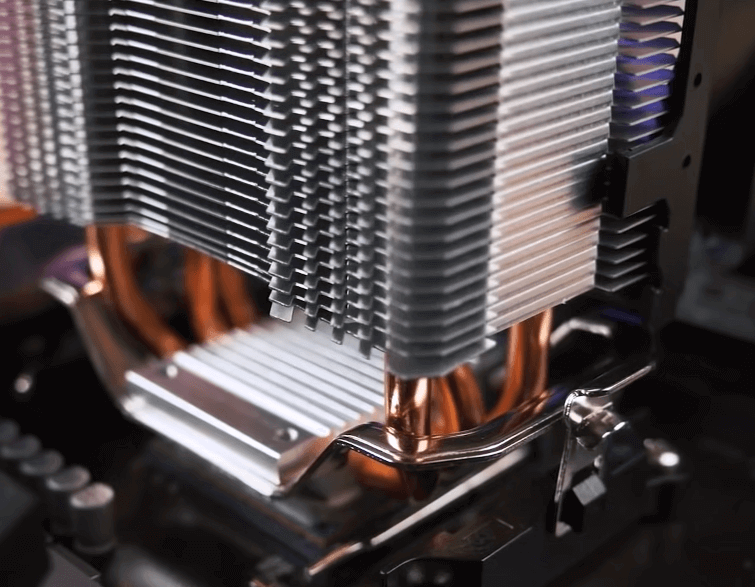
The water cooling system is arranged in a similar way, but instead of air, the liquid circulates - the same distilled water or antifreeze. And instead of copper hollow pipes, hollow plastic pipes. The cool liquid absorbs the heat from the processor, then the pump is triggered, it exchanges the hot liquid for cold liquid. An example of how a water cooling system works is given below.
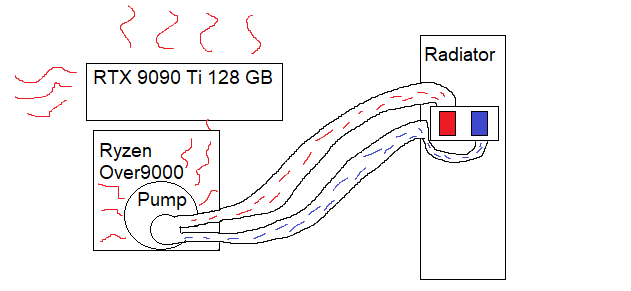
But the example above is too exaggerated. In real life, a water-cooled system has a much better appearance.
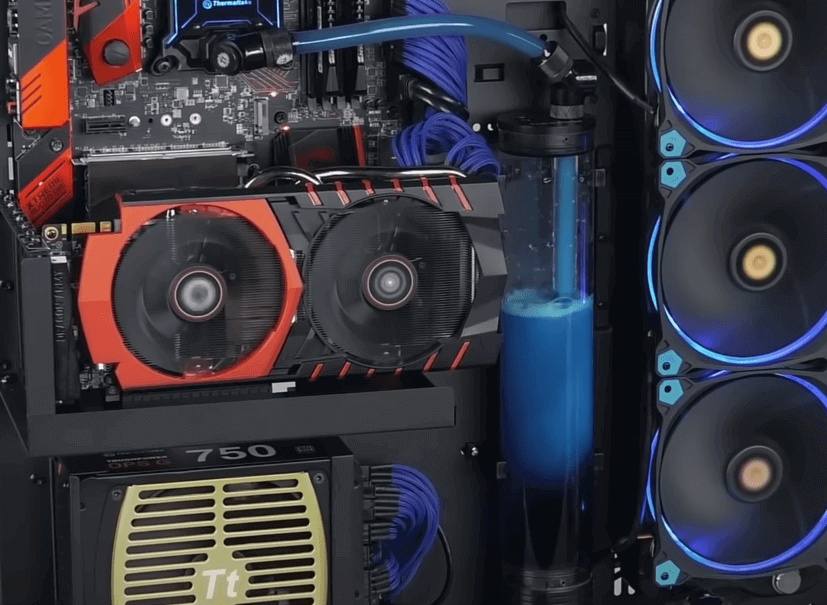
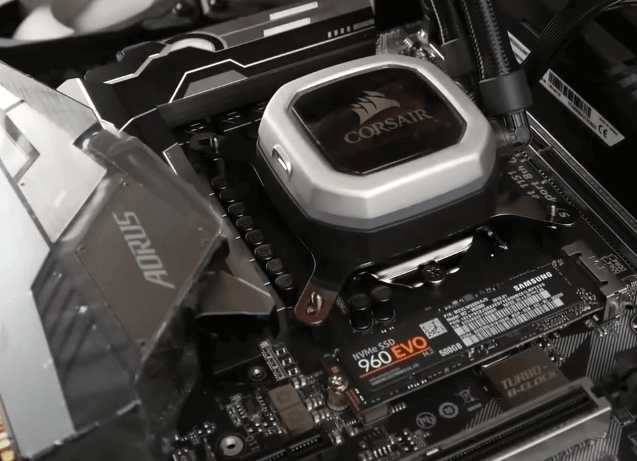
Thanks to a more advanced type of cooling, the water cooling system is able to dissipate much more heat. For example, graphics cards that consume 300W or more in combination with a processor that consumes 100-130W will be an impossible task for an air-cooled system. However, the price of a water cooling system also bites. After reading this you might conclude that the water cooling system is a new branch in development, that buying an air cooling system is risky. But it isn't...
Why a water cooling system is needed
In short - for cooling top-end hardware. Where air-cooling fails, a water-cooler comes and solves the problem. However, in the vast majority of tasks water cooling system will be more of a burden than a practical solution. A water cooling system is mandatory only for: people who make money from 3D modeling, professional videomakers and Cyberpunk 2077 fans on ultra settings. In addition the water cooling system has unpleasant nuances - installation and location.
The radiator must be at the front of the case, and the pump must be below the radiator. If you install the water cooling system differently, there is a risk of reducing the life of the pump and blocking the air on the tube. If the heatsink of the water cooler is over the video card, it will give heat to the heatsink. This will cause the cooling system to become a heating system. This will be followed by trotling - an emergency frequency reduction of the video card and processor to prevent damage. If even trotling does not stop the user, there is a good chance to say goodbye to the hardware.
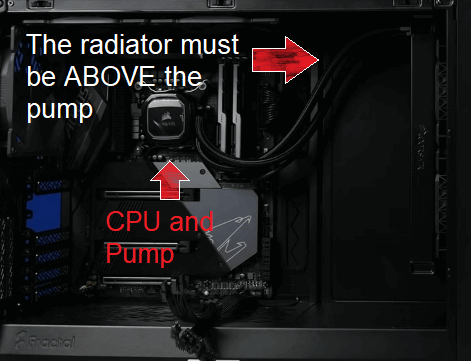
What to fill up the water cooling system with?
Of course, with liquid nitrogen...

Except as a joke, the liquid does not play a special role. It's the composition of the liquid that counts. Do not take something colored. Over the years, such liquids will leave oxide inside the pipes, and it is difficult to maintain them - you need to know how to disassemble, assemble and clean them with special brushes.
Так зачем мне система водяного охлаждения?
For cooling beasts such as:
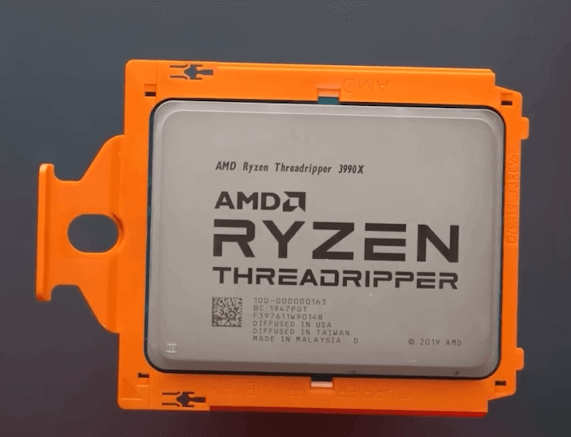
...И:
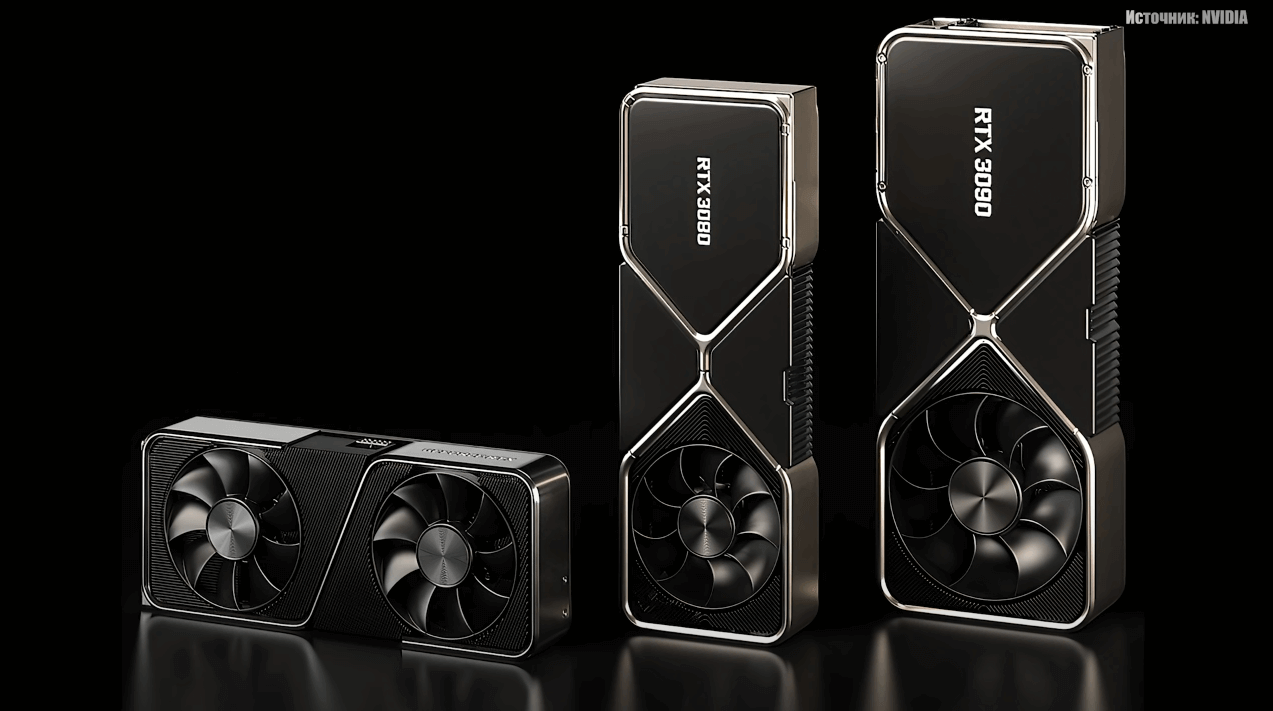
...and higher. But with one caveat: only the most demanding games heat graphics cards and the processor to 80-90 degrees.
